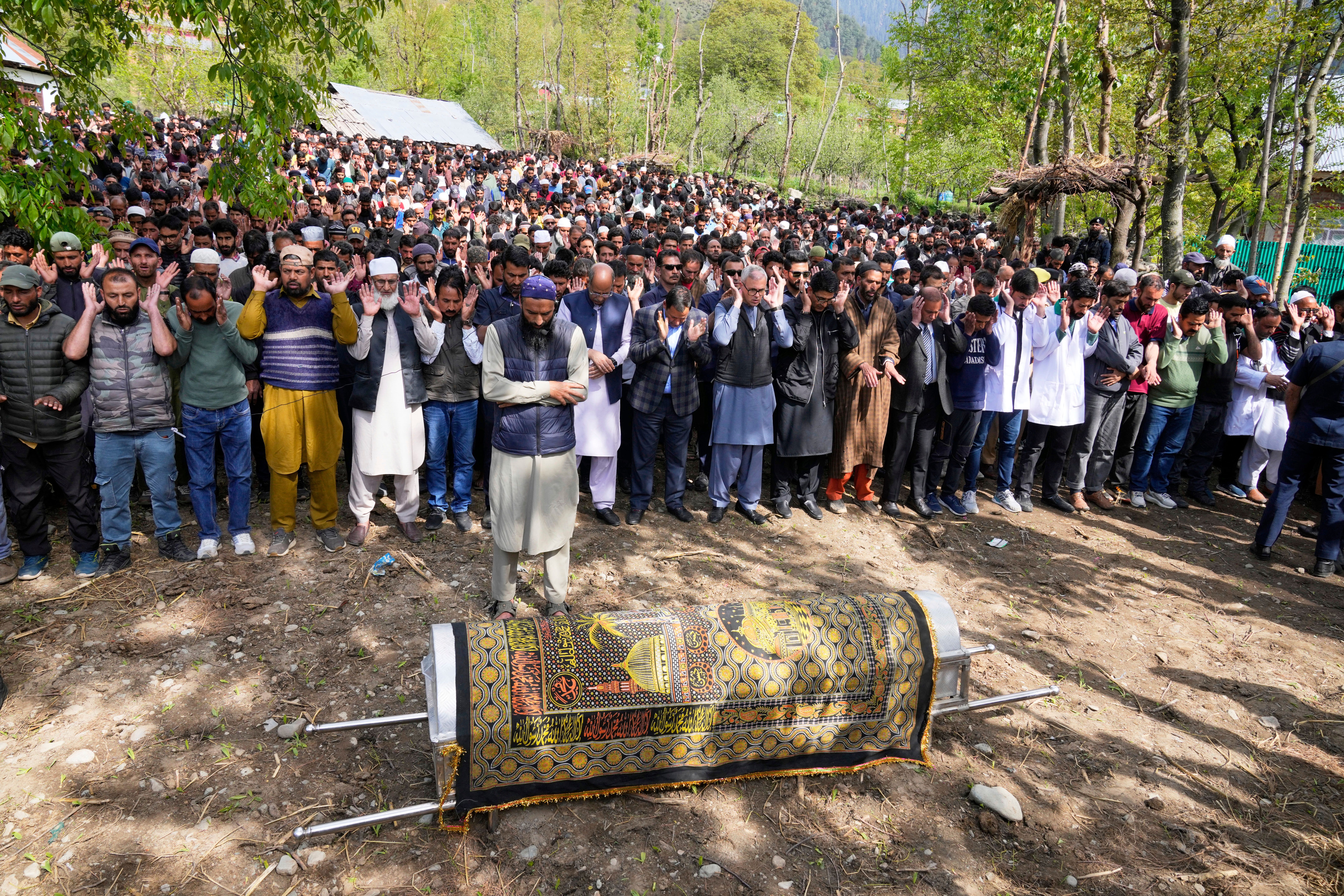Pakistan’s Prime Minister Shehbaz Sharif led a rare meeting of the national security committee on Thursday, the government said, after India accused its neighbour of supporting “cross-border terrorism” and downgraded ties.
“The meeting of the national security committee starts,” the Information Ministry announced, after New Delhi launched a vast manhunt and vowed to punish gunmen responsible for killing 26 people in India-administered Kashmir.
Modi vows punishment
On Thursday, Indian Prime Minister Narendra Modi vowed to punish all those responsible for a gruesome attack in India-administered Kashmir that killed 26 men.
“I say to the whole world: India will identify, track and punish every terrorist and their backer,” he said in his first speech since Tuesday’s attack in the Himalayan region. “We will pursue them to the ends of the Earth”.
The shooting in the tourist hotpot of Pahalgam was the deadliest attack on civilians in the contested Muslim-majority territory since 2000. Of the men killed, 26 were Indian and one was a Nepalese national.

On Wednesday, India accused Islamabad of supporting “cross-border terrorism” and downgraded ties with its neighbour with a raft of diplomatic measures. Pakistan has denied any role in the Pahalgam attack.
Modi, who was speaking in Bihar state to launch development projects, first led two minutes of silence in memory of those killed. “I say this unequivocally: whoever has carried out this attack, and the ones who devised it, will be made to pay beyond their imagination”, he said, speaking in Hindi in front of a large crowd.
He finished his speech with rare comments in English, directing them to an audience abroad. “Terrorism will not go unpunished,” Modi said. “Every effort will be made to ensure that justice is done.”
Kashmir has been divided between India and Pakistan since their independence in 1947, with both claiming the high-altitude territory in full but governing separate portions of it. Rebel groups have waged an insurgency in India-administered Kashmir since 1989, demanding independence or a merger with Pakistan.
In recent weeks, the Modi government has cracked down on Muslim organisations, books, and schools, causing unrest across the region.
Indian security forces have launched a massive manhunt in Kashmir for the attackers, with more than 1,500 people arrested in Indian-administered Kashmir since the gunmen's attack.
Police in India-administered Kashmir published notices on Thursday naming three suspected militants “involved in” the attack, and announced rewards for information leading to their arrest. Two of the three suspected militants are Pakistani nationals, the notices said.
India’s reaction
Since the attack, India has suspended a decades-old water treaty with Pakistan. New Delhi has also declared Islamabad's defence — military, naval, and air — advisers persona non grata at the Pakistani High Commission in New Delhi, giving them one week to leave the country.
Besides this, India has also closed the border crossing with Pakistan at Wagah, while New Delhi will restrict visas to Pakistani citizens, the government said in a statement.
Dozens of protesters gathered outside the Pakistan embassy in New Delhi's diplomatic enclave on Thursday, shouting slogans and pushing against police barricades.
Meanwhile, there have also been reports of Kashmir Muslims, mostly students, being attacked by Hindu right-wing mobs in various cities of India.
Islamabad has denied any involvement in the attack. On Wednesday, Pakistani Defence Minister Khawaja Asif blamed India for sponsoring unrest within the neighbouring country.
A Pakistan government minister has said India’s suspension of a river treaty following a deadly attack on tourists in Kashmir was an act of “water warfare”, underlining a sharp plunge in relations between the nuclear-armed rivals.
“India’s reckless suspension of the Indus Waters Treaty is an act of water warfare; a cowardly, illegal move,” Pakistan’s Power Minister Awais Lekhari said in a post on X late on Wednesday night.















